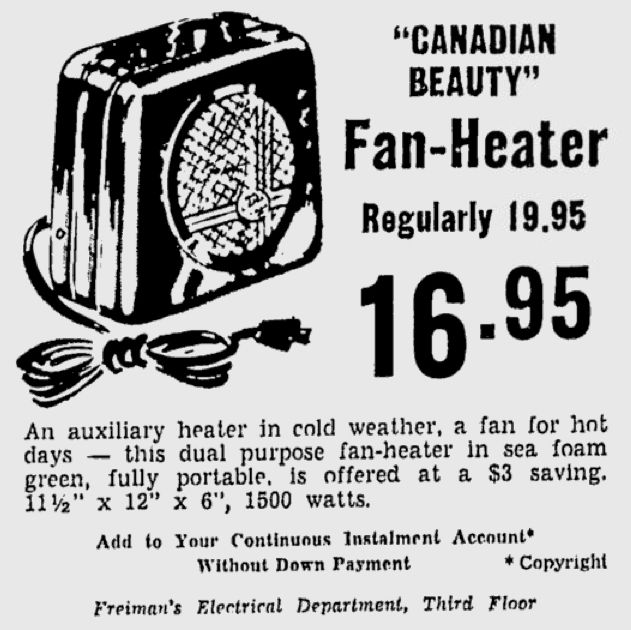beatcomber
AK Member
While on vacation last week, I picked up a very cool c.1954 "Canadian Beauty" table-top fan/heater in a Toronto antique shop. The unit does work and runs quietly, but the fan produces barely any breeze. I'm thinking that the blades are not turning fast enough and it needs a cleaning/relubing. Since a fan motor is probably not all that different from a turntable motor, what would you experts recommend I use for lube on this neat old machine?
Here's an ad for the exact fan that I bought from a November 1954 Ottawa newspaper:

Here's an ad for the exact fan that I bought from a November 1954 Ottawa newspaper:



